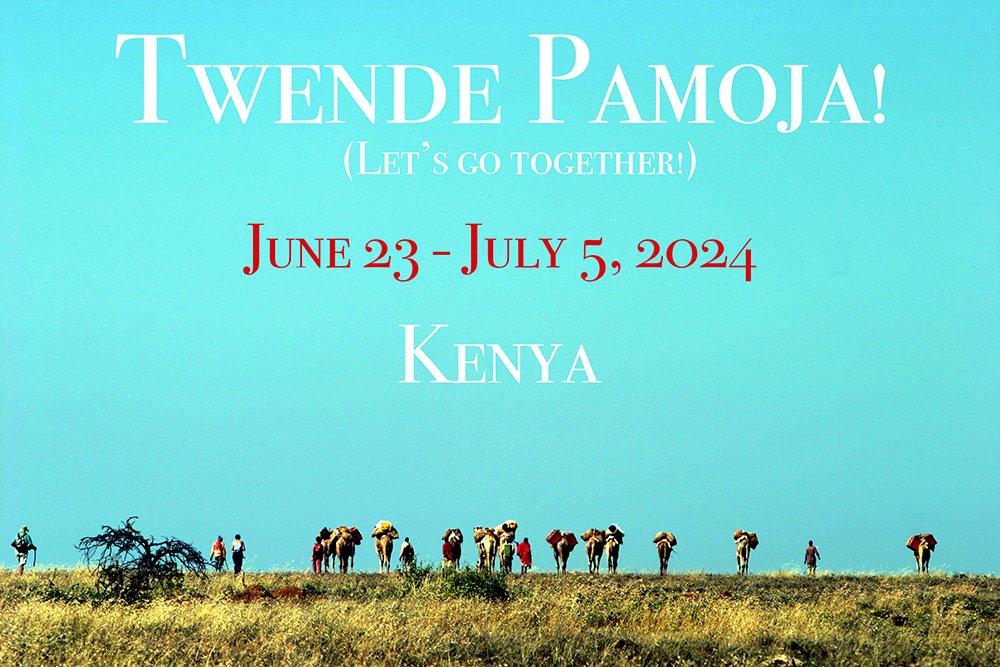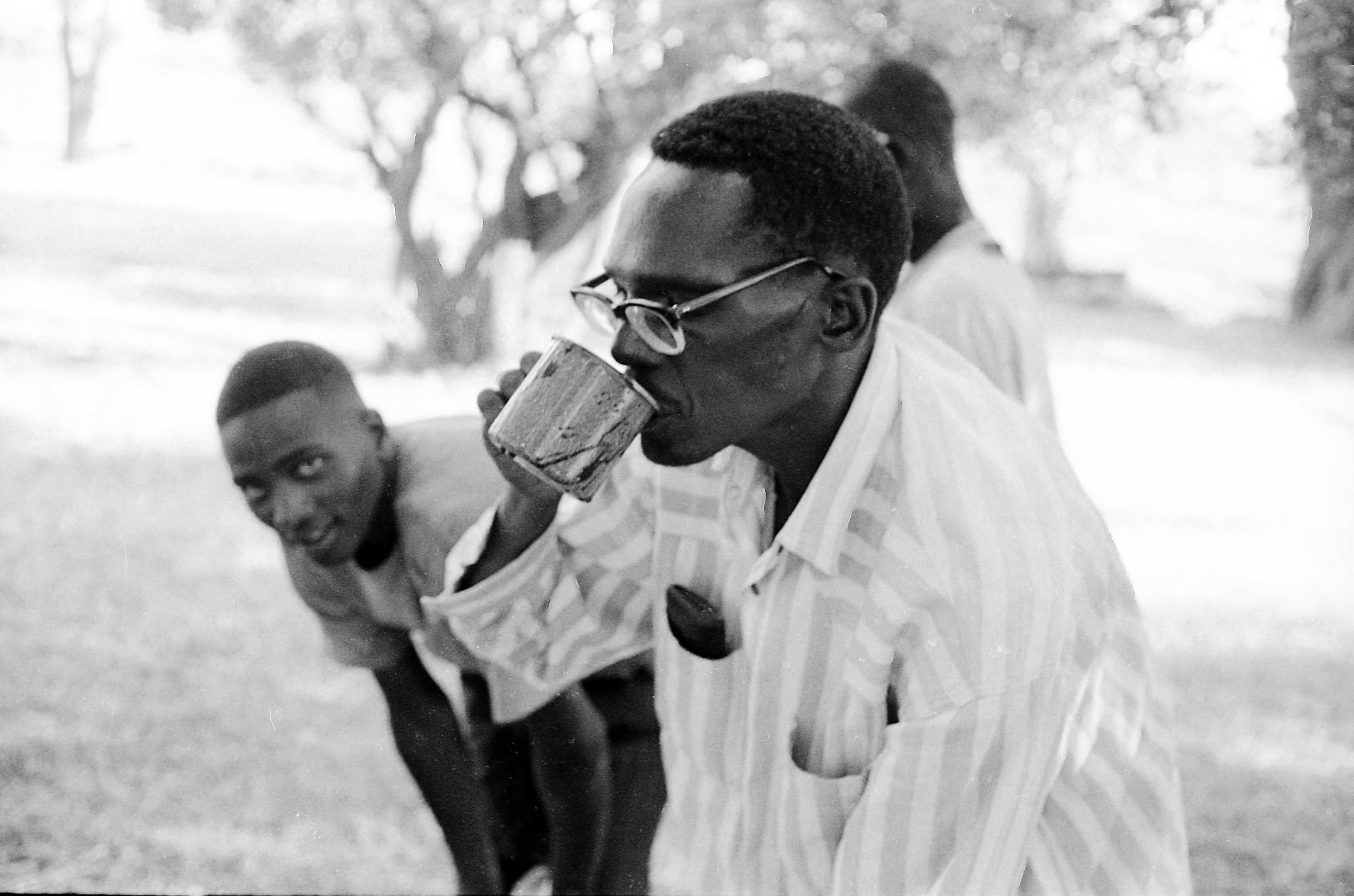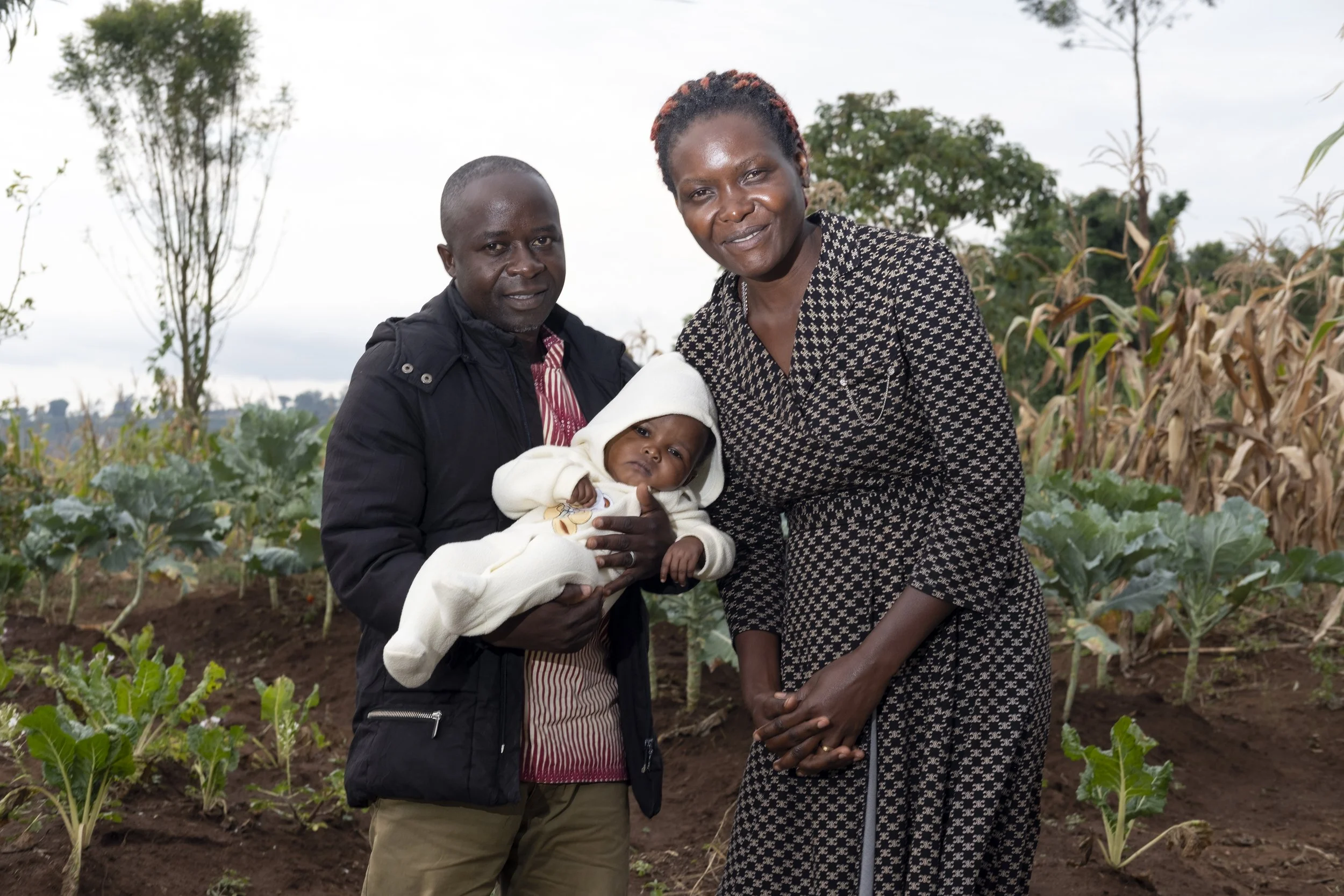Twende Pamoja!
by Jeff James
Twende Pamoja is the name of our charity walk in Kenya. It’s a walk to raise money for our work in fortifying struggling families and improving birth outcomes for women and children in some of the most resource-poor places in the world. It is a walk that will change how you experience the world for the rest of your life. In Swahili it means “Let’s go together.” We currently have a group of 6 walkers signed up. We need a minimum of 10 in order to make it happen. I hope, in the following passages, to inspire you to join me on this walk.
So why name a charity walk ‘Twende Pamoja’? First, it was one of the first Swahili phrases I learned in 1997, when working as a teacher in a remote area of Kenya. It was a period in my life where I was feeling quite lost. I had fled my hometown of Baltimore after a failed relationship and volunteered to work at this boarding school in Kenya. I was emotionally beaten down, in poor physical health, and without a friend or family member to seek out for comfort.
John Asekoni in the garden.
The school’s gardener, a tall and thin man, seemingly frail but deceptively powerful, took some interest in getting to know me. He wore coke bottle glasses, which magnified his already large eyes, accentuated by the shrunk-wrapped skin that revealed every contour of his skull. He spoke slowly and softly with impeccable English, and he had a textbook knowledge of all the flora and fauna of Kenya. He was my first Kenyan friend, and his name was John Asekoni.
John would invite me into the garden to work with him, teaching me Swahili and about soil acidity and alkalinity, explaining that in the central highlands of Kenya, our particular soil was called a nitisol soil, meaning it was produced from volcanic rocks around the slopes of Mt. Kenya. He explained that it needed to be enriched with manure for agriculture, and each day he would walk to the local Masai village, about a kilometer away, and gather as much manure as he could carry in a burlap sack, lugging it back to mix into his garden beds.
John lived about 5 kilometers from the school, and at the end of every school day he would walk back to his village. Often he would call to me as he was leaving, “Jeff, twende. Twende Pamoja!” At first, I was hesitant to venture far from the school, my home, for I was culturally and linguistically ignorant and felt safest within the fenced compounds of the school. So I would just smile and wave and send him off with a “Kwaheri, rafiki. Tuonane kesho,” (Goodbye friend. See you tomorrow), phrases I learned from my time with John in the garden.
But as time passed, I became more confident and adventurous, trusting in John and enjoying his company. So, when he called, “Twende pamoja” at the day’s end, I smiled and walked with him to his village, Nabor. The village consisted of about 20 square, mud-walled homes with rusted and corrugated metal roofs. It had a couple of small dukas (shops) where you could buy cigarettes, soap, matches, batteries, and sacks of flour for chapatis, and it had one bar. The bar’s floor was dirt, mounded and ridged by the water when the rains streamed through. Every table and chair sat lopsided due to the uneven floors, so you needed to keep a hand on your drink to keep it from sliding off or falling over. The Tusker beers were stored in about half-a-meter deep hole, dug into the floor to keep the beers cold. The bar had a television, powered by a car battery, and it picked up one television station that either played soccer matches or reruns of “The Bold and the Beautiful.”
On weekends, I would walk to Nabor to hang out with John, and we would watch television, teach each other about the nuances of our countries and cultures, and laugh about the caricatures of Americans in that soap opera, and how Kenyans assumed that they were accurate depictions. Those were glorious times, and I sure miss them and my friend John.
John died of AIDS a few years after that - a disease he never knew he had. The nearest clinic was 30 kilometers away, too far away to seek medical help when one got sick, especially when your primary form of transportation is your feet. Much has changed in Africa in the 27 years that have passed, but for the rural poor, access to quality health care and transportation is still a major issue. To this very day, people will opt out of seeking health care because they are too sick to walk, and the costs are prohibitive. A pregnant women will often choose a home birth with an unskilled birth attendant, rather than take the arduous journey to the nearest health center. Sometimes this works out, but when a complication occurs, the outcome is often fatal for mother or child, or both. Even if she makes it the local clinic, her chances of survival are poor, as most rural clinics lack the tools and training to stabilize a patient in order to transport her to higher level care.
This is where Maternal Life comes in. With our Safe Passages program, we train nurses, midwives, and physicians in emergency obstetrical procedures, providing equipment to help diagnose and stabilize a patient so that higher level care can be reached, and lives can be saved. In our ‘Faithful House’ program, we urge husbands to be more involved in the journey of pregnancy, being present for antenatal care and for the delivery and birth of their child. Data shows that when a woman has an involved and supportive partner, health and birth outcomes are dramatically improved. And in our ‘Journey of a Thousand Days’ program, we teach couples that those first thousand days of life, from conception to year 2, are the most critical time in human development. What occurs in these first thousand days may bless or haunt a child forever. A healthy first thousand days establishes a solid platform for the physical, mental, and relational health of children that will last them for the rest of their lives!
Twende Pamoja is a walk of solidarity for those who must walk for survival. Make no mistake, it is not a “walk in the park.” It is an adventure for a cause. We will be walking many kilometers over a 7-day period. We will walk over land that many people have traversed seeking food, shelter, and health care. Our walk will not only remind us of our blessings, living in a society rich in resources and access to health care, but it will bond us to those who are not as fortunate. We will do it safely, having camels to carry our gear, guides to show us the way, food to nourish our bodies, and solidarity with our fellow walkers – people who have a heart for the poor, and a mission to serve.
Twende Pamoja will take place June 23 – July 5 in Kenya. Let’s go together!






